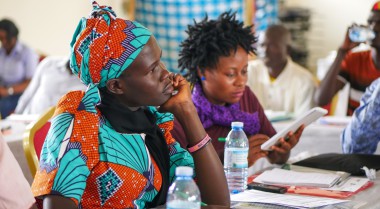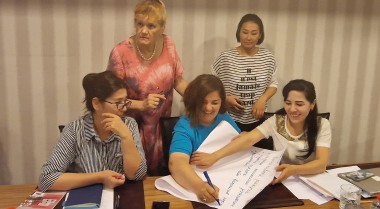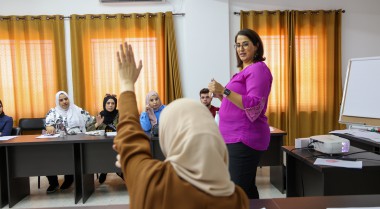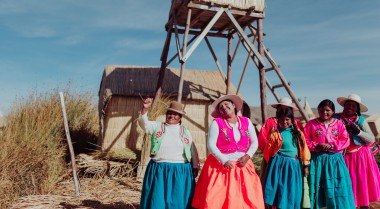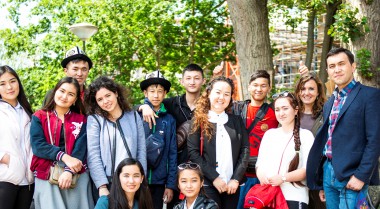Women as Peacemakers
In December 2023, our member, Centre for Conflict Resolution (CECORE), embarks on a six-month project in Yumbe District, Uganda. Supported by the Women’s Peace and Humanitarian Fund’s Rapid Response Window, the project aims to enhance local women’s participation in peaceful conflict resolution, addressing the historical exclusion and limited involvement of women in peace dialogues in the country over the past two decades.
The women of Yumbe district have not participated in peace processes since time immemorial, despite ongoing efforts to address conflict in Uganda. As a result, the peace dialogues lack gender provisions and meaningful inclusion and participation of women in their implementation. Over time, this has led to a significant gap in addressing women’s distinct needs.
Yumbe District, located in North Western Uganda, borders two conflict-affected countries, the Democratic Republic of Congo (DRC) and South Sudan. Peace in this context is exceptionally fragile due to possible spillover, which makes the inclusion of women in peace processes even more challenging. The two main obstacles to women’s inclusion that CECORE’s action focuses on are disputes due to the high influx of refugees and restrictive and harmful social norms.
- As the largest refugee host in Uganda, Yumbe frequently experiences violence and resource-sharing conflicts, exacerbated by the increasing influx of refugees from neighbouring South Sudan and the Democratic Republic of Congo (DRC). Disputes over resources such as wood, water, and food escalate between host communities and the refugees, disproportionately affecting women who are the primary providers by depriving them of goods necessary to tend to their families' needs.
- The socio-cultural barriers historically restricting women from actively participating in decision-making and peace processes. Moreover, there is a high prevalence of Sexual and Gender-Based Violence (SGBV), particularly affecting young girls forced into early marriages, thus disempowering them by limiting their basic human rights, starting from the right to education.
Therefore, enhancing women’s participation in peace processes is not only a matter of addressing historical injustices relating to women’s exclusion in public space. It is also a pragmatic approach to resolving the ongoing resource conflicts and addressing socio-cultural barriers.
The Project: Enhancing Women’s Participation in Peace Processes
Against this backdrop, CECORE’s project has two goals. Firstly, it aims to address the historical exclusion of women from peace dialogues. By actively involving local women in peace dialogues, the project intends to ensure their voices are heard, addressing their specific needs and experiences that have been overlooked in the past.
"We aim to break the cycle of conflict, ensuring women are not sidelined but seen, heard, and actively represented in political processes." - Rose Othieno
Secondly, understanding the challenges in Yumbe, this project strives to empower women with practical skills and knowledge to influence how peace is made in their communities. This empowerment equips them to actively participate in and shape the peace dialogues within their communities, fostering a more inclusive approach to building sustainable peace.
To kickstart the process, CECORE will bring together a group of women through local consultations, in the areas most affected by conflict. These women will build their skills and knowledge in human rights-based approaches, aligning with UN Resolution 1325. The training includes understanding concepts like gender equality and conflict transformation and learning practical skills such as peace dialogue and participation in peace processes. Additionally, some sessions will focus on raising awareness about the diverse forms and contexts of SGBV. The goal of the training is to empower local women to participate in peace dialogues with the relevant stakeholders meaningfully. The intervention will also result in drafting recommendations for authorities and advocacy for their integration into the local by-laws.
Fostering Inclusive Peace Among Women
Inclusion and local ownership are the cornerstones of every impactful action to sustain peace. Therefore, this project will foster unity and shared responsibility. CECORE ensures local ownership through collaborative efforts that prioritise safe and inclusive participation. Building on their local expertise and access, CECORE will engage local stakeholders, such as local government actors, partner civil society organisations, community members, youth, and women leaders.
"Unlocking the transformative power within women is key to creating impactful change. We must dedicate ourselves to realising the full potential they possess." - Marion Akiteng
Achieving sustainable peace in Yumbe requires prioritising women, addressing power imbalances through women’s active involvement in decision-making, and integrating their perspectives in conflict resolution. That is why, in the next six months, CECORE will empower local women in advocacy and lobbying skills, enabling them to influence decision-makers and participate in peace dialogues, thereby contributing to the prospects of lasting peace in the region.
About the United Nations Women's Peace and Humanitarian Fund’s Rapid Response Window
The WPHF Rapid Response Window for Women’s Participation in Peace Processes and the Implementation of Peace Agreements is a funding mechanism of the United Nations Women's Peace and Humanitarian Fund that addresses urgent funding gaps with targeted, short-term support to increase women's participation in peace processes and the implementation of peace agreements.
WPHF is a flexible financing tool supporting quality interventions to enhance the capacity of local women to prevent conflict, respond to crises and emergencies, and seize key peacebuilding opportunities.
